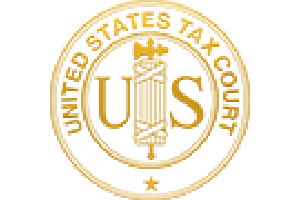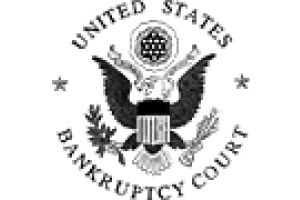Getting Results
CDTFA Firearm, Guns and Ammunition Sales Tax
CDTFA Sales Tax Issues for Firearm, Guns and Ammunition Products. The retail sale of firearms, firearm precursor parts, guns and ammunition in California is subject to a complex framework of tax obligations administered by the California Department of Tax and Fee Administration (CDTFA). In addition to standard sales and use taxes, retailers must navigate the California Firearms, Firearm Precursor Parts, and Ammunition Excise Tax (CFET), introduced under the Gun Violence Prevention and School Safety Act (Assembly Bill 28, Stats. 2023, ch. 231). This tax lawyers guide provides a detailed overview of CDTFA sales tax issues specific to firearm, guns and ammunition product sellers.
Retailers of firearms, firearm precursor parts, and ammunition in California face two primary tax obligations:
- Sales and Use Tax: Applies to the retail sale of tangible personal property, including firearms, guns, precursor parts, and ammunition, unless a specific exemption applies.
- California Firearms, Firearm Precursor Parts, and Ammunition Excise Tax (CFET): An 11% excise tax imposed on the gross receipts from retail sales of these products, effective July 1, 2024.
These taxes require retailers to register with the CDTFA, file returns, and maintain accurate records. Non-compliance can result in audits, penalties, and interest on unpaid taxes. Criminal sales tax investigation exposure due to the nature of the industry should be of concern to retailers.
Sales and Use Tax Requirements
Taxable Sales
Retail sales of firearms, guns, firearm precursor parts, ammunition, and related accessories are generally subject to California’s sales tax unless an exemption applies. The taxable amount includes:
- The sales price of the item.
- Any business expenses separately stated on the invoice (e.g., merchant credit card processing fees).
- Charges related to the sale, unless specifically excluded by law.
Key Exclusions:
- CFET reimbursement amounts, if separately stated on the invoice, are not included in the sales tax calculation.
- State fees collected at the time of sale (e.g., Department of Justice Firearms Dealer Record of Sale (DROS) fee, Firearms Safety fee, and Safety and Enforcement fee) are excluded from the taxable amount if listed separately.
Sales Tax Rates
California’s sales tax rate comprises:
- State tax rate: 7.25%.
- Local tax rate: Varies by jurisdiction.
- District tax rates: Range from 0.10% to 1.00%, depending on the location.
The total tax rate varies by the retailer’s business location. Retailers can use the CDTFA’s California City & County Sales & Use Tax Rates page to determine the applicable rate.
Table 1: Sample Sales Tax Rates by Jurisdiction (2025)
| Jurisdiction | State Rate | Local Rate | District Rate | Total Rate |
|---|---|---|---|---|
| Los Angeles County | 7.25% | 1.00% | 2.25% | 10.50% |
| San Francisco | 7.25% | 1.00% | 1.50% | 9.75% |
| Sacramento | 7.25% | 1.00% | 0.50% | 8.75% |
Note: Rates are illustrative and subject to change. Verify rates at CDTFA’s tax rate lookup tool.
Exemptions
Certain sales are exempt from sales tax:
- Sales to the U.S. Government: Exempt from both sales tax and CFET.
- Sales for Resale: Retailers must obtain a valid resale certificate (e.g., CDTFA-230) from the buyer to document the exemption. A Federal Firearms License (FFL) does not qualify as a resale certificate.
- Sales Delivered Outside California: Exempt if the product is shipped directly to an out-of-state buyer.
Retailers must retain exemption certificates for at least four years to substantiate tax-exempt sales during audits.
California Firearms, Firearm Precursor Parts, and Ammunition Excise Tax (CFET)
Overview
The CFET is an 11% excise tax on the gross receipts from retail sales of firearms, guns, firearm precursor parts, and ammunition by licensed firearms dealers, manufacturers, and ammunition vendors. The tax supports gun violence prevention, education, research, response, and investigation programs.
Taxable Gross Receipts
Gross receipts subject to CFET include:
- The sales price of firearms, firearm precursor parts, or ammunition.
- All charges related to the sale (e.g., merchant credit card processing fees, fabrication labor charges).
- Shipping charges, unless the product is shipped directly to the purchaser (typically not applicable to California Firearms Dealers (CFDs) due to transfer restrictions).
Exclusions:
- State-imposed fees (e.g., DROS fee, Firearms Safety fee) listed separately on the invoice.
- Sales tax amounts.
- Sales to peace officers (active or retired) or law enforcement agencies employing peace officers, documented with a CDTFA-230-FET exemption certificate.
Small Transaction Exemption
Retail sales with total gross receipts less than $5,000 per quarterly period are exempt from CFET but remain subject to sales and use tax. If CFET is collected on exempt sales and not refunded to customers, retailers must report and remit the excess CFET to the CDTFA.
Table 2: CFET Taxable vs. Non-Taxable Items
| Item Type | CFET Taxable? | Sales Taxable? | Notes |
|---|---|---|---|
| Firearm (e.g., handgun, rifle) | Yes | Yes | Subject to 11% CFET on gross receipts. |
| Ammunition (e.g., bullets, shells) | Yes | Yes | Subject to 11% CFET on gross receipts. |
| Firearm Precursor Part | Yes | Yes | Defined in Penal Code § 16531. |
| DROS Fee | No | No | Excluded if separately stated on invoice. |
| Sale to Peace Officer | No | Yes | Requires CDTFA-230-FET exemption certificate. |
| Sale to U.S. Government | No | No | Requires proper documentation. |
| Sale for Resale | No | No | Requires CDTFA-230 resale certificate. |
Filing and Payment Requirements
Retailers must:
- Register for a CFET Certificate of Registration via the CDTFA’s Taxpayer Online Service Portal, in addition to a seller’s permit.
- File Returns: Submit CFET returns electronically by the last day of the month following each quarterly reporting period (e.g., April 30 for Q1: January 1–March 31). Returns are required even if no taxable activity occurs.
- Retain Records: Keep copies of returns and exemption certificates on business premises for audit verification.
Figure 1: CFET Filing Deadlines (2025)
| Quarter | Period Covered | Filing Deadline |
|---|---|---|
| Q1 | Jan 1–Mar 31 | Apr 30, 2025 |
| Q2 | Apr 1–Jun 30 | Jul 31, 2025 |
| Q3 | Jul 1–Sep 30 | Oct 31, 2025 |
| Q4 | Oct 1–Dec 31 | Jan 31, 2026 |
Compliance Challenges and Best Practices
1. Recordkeeping
Retailers must maintain detailed records to substantiate taxable and exempt sales, including:
- Sales invoices showing separate charges for CFET, sales tax, and exempt fees.
- Resale certificates (CDTFA-230) and CFET exemption certificates (CDTFA-230-FET).
- Documentation for out-of-state deliveries or U.S. government sales.
2. Out-of-State Sales and Transfers
Out-of-state retailers shipping firearms to California must use a registered California Firearms Dealer (CFD) to complete the transfer, including logging the firearm in Federal Acquisition/Disposition books and processing DROS. The CFD is responsible for collecting and remitting sales tax and CFET unless the out-of-state retailer is registered with the CDTFA.
Best Practice: CFDs should obtain sales invoices from out-of-state sellers to accurately calculate taxes due.
3. Consignment Sales
In consignment sales, where a private party (consignor) uses a CFD to sell a firearm, the CFD is considered the retailer and is liable for both sales tax and CFET. These are not treated as private party transfers.
Best Practice: Clearly document consignment agreements and include tax calculations in consignee records.
CDTFA audits may occur every three years, upon permit closeout, or in connection with other permits held. Audits verify:
- Accuracy of reported gross receipts.
- Validity of exemption claims.
- Proper remittance of CFET and sales tax.
Non-compliance can result in tax assessments, interest, and penalties.
Retailers must hold:
- A Federal Firearms License (FFL) from the Bureau of Alcohol, Tobacco, Firearms and Explosives (ATF).
- A seller’s permit and CFET Certificate of Registration from the CDTFA.
- Appropriate certifications from the California Department of Justice (DOJ), such as inclusion on the Centralized List of Firearms Dealers.
Failure to obtain these licenses can result in legal and tax liabilities.
Contact Us
To conference with a CDTFA sales tax attorney, please contact us.





















